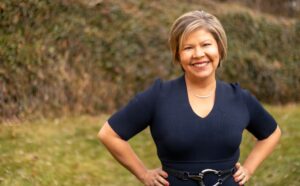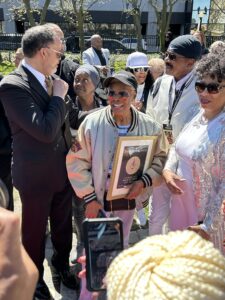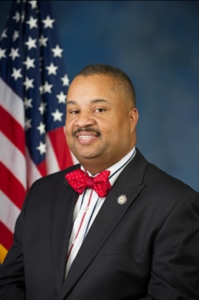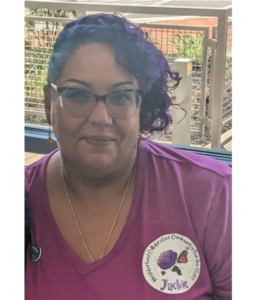Diverse Voices: Solidarity Can Exist Between People of Color and Non Binary Community
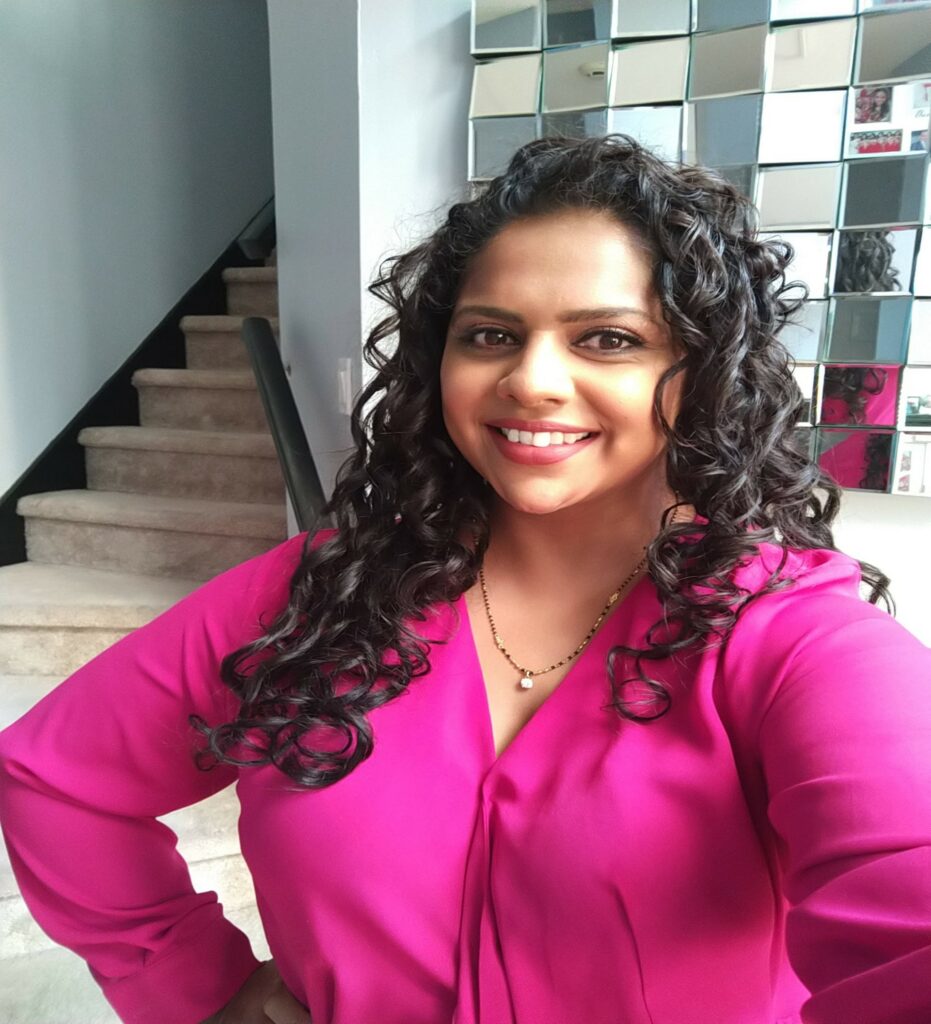
OP-ED
By Shelja Touri | AC JosepH Media
MARLTON — From July 10-16, Non Binary Awareness Week has been upon us — and July 14th is especially dedicated to non-binary individuals around the world.
This event is more than just a chance to make oneself seen — it’s an opportunity to foster understanding, acceptance, and equality amongst all genders. It’s not only about visibility – but rather about initiating real discussions so that our culture can progress toward justice for all.
It’s time to shatter those rigid binary gender definitions and start bracing for something with greater range. Some non-binary people identify as part-male, part-female; others consider themselves an ‘enby’ or an ‘androgynous’, free from any gender label. The most important aspect here, though, is understanding and standing by those who don’t fit into the traditional boxes—especially when it comes to public initiatives and official documents. Thankfully, society is slowly responding to this need for acceptance and representation.
It’s a well-known fact that when you look at the intersection of race and gender identity, it adds another layer of complexity and nuance to the lives of non-binary people of color. You see, intersectionality is a sociological concept that focuses on how all aspects of someone’s social identity work together. In the case of non-binary POCs, this could create an array of issues that are intricate and plentiful.

Unfortunately, many outdated norms around gender can be extremely hard for these individuals to navigate through. The gender binary, which reduces the full scope of humanity’s gender identity to just two – male and female – leaves little wiggle room or recognition for those whose identities don’t fit. People who identify as non-binary can feel like neither male nor female, or both – and sometimes that fluctuates.
This kind of ostracism from society can be detrimental and cause discrimination, even violence. When you factor in racial discrimination too, non-binary people of color face a doubly difficult situation; in addition to the bias they already face, they also have to contend with limited cultural recognition. Communities of color, regardless of gender, must recognize and validate non-binary people. These individuals encounter a plethora of economic duress and are victims of multiple forms of discrimination based on their gender identity, race, ethnicity, and other elements. It is crucial that we act to foster acceptance for this group.
When individuals who don’t align to the gender binary are also a part of racially marginalized groups, they often face double discrimination. It’s actually startling how little attention is paid to non-binary people and the irreparable damage it does.
The lack of representation translates into serious roadblocks when it comes to accessing justice, healthcare, and support for those who experience violence and prejudice. But perhaps most concerning is that governments fail to specificially recognize LGBTQ+ members in programs or laws meant for women’s rights– meaning non-binary individuals are often left in the dust when it comes to research, policy-making, and advocacy efforts.
Unveiling the difficulties endured by non-binary folks can be exceptionally insightful. Increasing awareness of this can lead to more informed medical and psychological practices for this group. Moreover, it curtails bias and aggressive behavior with cisgender people gaining knowledge about gender diversity.
Ultimately, heightening consciousness around non-binary identities is paramount for forming an environment that proudly supports the rights and experiences of all people irrespective of their gender identity. As if the plight of any non-binary person was not hard enough, those who also belong to a racial minority have to deal with a distinct level of adversity. Not only do they battle unfair social pressures, but they must contend with little familial support. This double-edged sword inflicts immeasurable psychological, emotional and physical damage on them. For instance, their wrestle for recognition can lead to high anxiety levels as well as depression.
In addition, these people may battle low self-esteem and even engage in self-harm due to the difficulty of forming healthy relationships. Without adequate backing, it’s typical for resources and opportunities to be sparse– leading to economic struggles and an overall poorer lifestyle. Why non-binary or other LGBTQ+ members might not experience the same level of support from communities of color can be intricate and multifaceted. Frequently, this is because of deep-seated societal beliefs, religious doctrines, or societal standards that view gender as binary and any deviation from that as strange or unnatural. Clearly, a lack of knowledge and schooling about non-binary identities just adds fuel to the fire that is the lack of support. Rewriting your beliefs can be a tough trek, particularly for people of color who don’t fit the traditional gender binary. But it’s worth it! To help get you started, we’ve gathered some tips. The first step is to educate yourself– not just from articles and books, but from real non-binary individuals and communities too. Listen to their tales of tribulation and triumph. Remember that their stories are vital in themselves.
Secondly, challenge your own biases and preconceived notions. Do you ever question the truth of your convictions? Have you ever asked yourself why you possess particular beliefs? If not, now is the time to start. We all possess certain attitudes and opinions that have been drilled into us by our environment – it’s essential to face these assumptions head-on and determine our own individual thoughts.
Furthermore, a powerful way to comprehend opposing perspectives is by carrying on conversations with individuals who have different backgrounds and experiences, as this can profoundly expand our knowledge and empathy.
It goes without saying that allies are essential for establishing a world of solidarity. As supporters, they speak up on behalf of people who are typically overlooked—particularly non-binary folks. Allies help to challenge misconceptions, put a stop to discriminatory operations, and foster an environment where all feel acknowledged. If you would like to act in the capacity of an advocate for non-binary people, here’s some helpful guidance: Take the time to familiarize yourself with gender identities that go beyond the binary. Learn about the difficulties they face, and let that knowledge shape your attitudes. Let’s all strive to create a world in which non-binary individuals are welcomed and accepted. Arm yourselves with understanding and compassion! Rather than relying on dated expressions such as ‘ladies and gentlemen’, let’s opt for more inclusive terms like ‘folks’ or ‘everyone.’ Taking this approach can help to create a more friendly and inclusive environment. Tuning in to someone’s gender identity is fundamental for connection and understanding. Being all ears, truly listening to the individual, is undeniably vital when they tell us who they are.
When addressing someone, it is important to remember to use the pronouns they prefer. Not only is this courtesy respectful, but it can also make them feel affirmed and accepted. It’s not enough to just look the other way when someone spouts something derogatory about someone’s sexual orientation. Interject! Let them know why it’s unacceptable and how they contribute to damaging the world we live in by chewing out those who do not identify exactly as they do.
That’s the way forward on our path towards an all-inclusive future. We all have a responsibility to stand up for non-binary people. One way that we can do our part is by providing financial and volunteer support to organizations that are passionate about protecting their rights and promoting their well-being. Every little bit helps! No matter the size of the situation – whether it’s at work or in school – make sure to bring a non-binary point-of-view to the conversation.
Be an advocate, and actively try to include this perspective on matters. Organizers and decision-makers should make it a priority to be inclusive when organizing events and selecting speakers. All voices should have the opportunity to be heard, regardless of gender, race, or ethnicity. Diversity shouldn’t just be encouraged; it should be insisted upon. We can be a strong defender of the non-binary community and together we can make a world that prizes plurality, demonstrates respect to all, and makes sure everyone has equal rights. Doing this will let us see a better future where everyone is treated with fairness.
BIO: Shelja Touri is an Australian born award winning diversity and inclusion champion from Burlington County. She’s an activist & a speaker with an academic background in social work that drives her passion for equity amongst the communities of color. She is the Executive Director & founder of the Diversity and Equal Opportunity Network since 2021 and the current Secretary & community outreach for Southern Burlington County NAACP’s since February 2023.
Follow Us Today On:
Note from AC JosepH Media: If you like this story and others posted on Front Runner New Jersey.com, lend us a hand so we can keep producing articles like these for New Jersey and the world to see. Click on SUPPORT FRNJ and make a contribution that will go directly in making more stories like this available. Thank you for reading.
